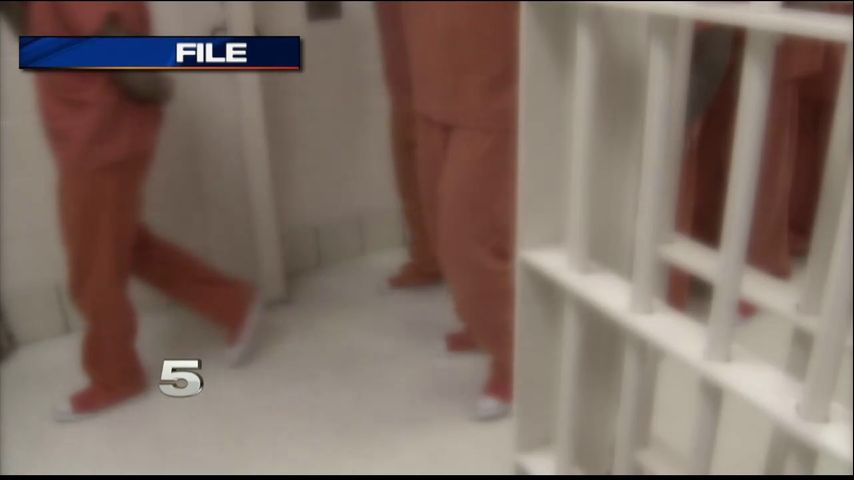Federal inmates question rules allowing home confinement during pandemic
Federal inmates at Three Rivers are worried about their health as the count of COVID-19 cases increased Friday. They're hoping to get placed in home confinement — an option created by the Attorney General due to the pandemic — but the bar they needed to clear was quietly set higher.
Inmates staying at the minimum security satellite camp, along a medium security federal correction institution, said they feel contracting the virus is inevitable. They said the camp has four wings, but the inmates were recently condensed into two.
"They combined us," an inmate said under the condition of anonymity for fear of retaliation. "They combined healthy with sick not knowing if they were sick or not. In the last three days, we've had 18 cases."
The Federal Bureau of Prisons, BOP, website confirms there are 18 cases of COVID-19 among inmates at Three Rivers which has a total of 1,080 inmates.
"So, what the guards have been telling us is they expect us all to get sick. They expect us all to get over it. And, they expect us all to go back to normal, soon," the inmate said.
Inmates fear the number is already higher. Recently, they said some detainees were taken out of their dormitory. They weren't feeling well.
They estimate there's about 40 people in each wing.
Cloth masks were handed out, but inmates still feel uneasy sleeping next to others who are only about three feet away, they said.
Some inmates could be released and placed in home confinement. The rules on that changed after a tool — Prisoner Assessment Tool Targeting Estimated Risk and Needs, or PATTERN — used to determine eligibility was altered.
Ian MacDougall — a journalist whose work appeared with the nonprofit newsroom, ProPublica — found there was an unpublished draft detailing the changes implemented by the BOP.
On Mar. 26, the Office of Attorney General shared a memo with BOP. The subject headline read, Prioritization of Home Confinement as Appropriate in Response to COVID-19 Pandemic.
The memo encouraged the placement of qualifying inmates into home confinement. Since then, BOP has placed 7,021 of their 129,268 inmates, or 5.4% of their population, in home confinement.
At Three Rivers, inmates who believe they qualify for the placement question why they haven't been deemed eligible.
"In other prisons, we've heard from other prisoners, that they're releasing low recidivisms in other prisons. They're not doing it here for some reason, though," they said.
The recidivism score is determined by PATTERN. It employs methodology described in detail in a document titled, The First Step Act of 2018: Risk and Needs Assessment System. It was implemented last year.
Inmates' conduct, offenses, gang affiliation are just some factors used to determine the Risk Level Category, or RLC. It's used to predict the likelihood of the inmate returning to prison if released.
Under the First Step Act implemented in 2019, an inmate's score can be categorized into four levels — minimum, low, medium, and high.
Under those rules, an inmate could be considered for release with a score of 21 and below. That would classify them in the minimum risk category.
Reaching that category became key when the Attorney General put out the memorandum on home confinement the following year.
In it, it directed BOP officials to consider, "The inmate's score under PATTERN, with inmates who have anything above a minimum score not receiving priority treatment under this Memorandum."
During the pandemic, some inmates who were previously in the minimum category were changed to a low category, essentially disqualifying them for placement in home confinement.
MacDougall heard these stories in his research. Eventually, he got hold of a 20-page policy in May that helped explain the confusion.
"So, people were getting scored one way and then getting scored again. And suddenly, they were first minimum and then suddenly they were low when they were re-scored. They didn't understand why," MacDougall said.
The drafted policy had changed the scores that determine the categories. Now, the score for a male inmate to be qualified as a minimum risk changed from 21 and below to 7 and below — a 14 point difference.
A couple days after his story published, the unpublished policy was shared unceremoniously. That was three months after the first memorandum on home confinement was issued.
"The Attorney General put in place this home release policy at the end of March. And throughout April, the percentage of one sentence that had to be served to qualify changed two or three times," MacDougall said of a different standard that changed, length of time served. "It wasn't explained to inmates."
Inmates at Three Rivers who spoke to CHANNEL FIVE NEWS are hoping to receive consideration under the new system.
As of Friday night, there's been no answer to a request for comment from FCI Three Rivers.




